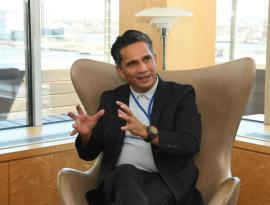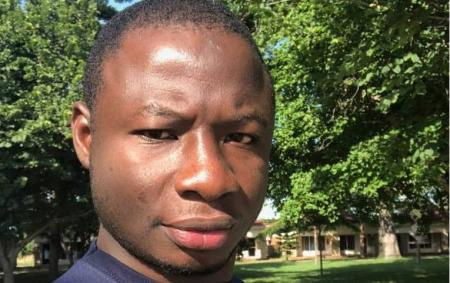Institute of Community Sustainability to take legal action against assenting to abolishment of Betting Tax
They said they are deeply disappointed in Parliament’s decision to pass the abolishment of betting tax.
Eric Jerry Aidoo, Executive Director of the Institute of Community Sustainability said that encouraging youth to engage in betting is not a viable solution for our country’s development. Betting is not a job, and our youth deserve better.
The Institute argues that the abolishment of betting tax will have severe consequences on the mental health and well-being of Ghanaian youth.
“How many mental health facilities do we have in Ghana to support those who become addicted to betting? Asked Chairman Jerry. We believe that the betting tax can be used to establish mental health facilities and create job opportunities for our youth.
“The Institute of Community Sustainability is committed to promoting sustainable development and community welfare in Ghana. We will not stand idly by while our youth are encouraged to engage in destructive behaviors, said Eric Jerry. We will take all necessary steps to ensure that our youth are protected and empowered to reach their full potential.”
Parliament on Wednesday, March 26, passed the Income Tax (Amendment) Bill, 2025 to abolish Betting Tax, taxes on Gaming and Lotteries, and repeal 1.5% withholding tax on unprocessed gold.
The betting tax was implemented with the hope of curbing the rate of gambling and generating more revenue for the country.
However, the move was met with widespread dismay by bettors, who felt the government was being insensitive to their plight.
The National Democratic Congress (NDC) promised during the 2024 campaign season to abolish the tax and others after describing it as nuisance.
Accordingly, the Finance Minister Dr Cassiel Ato Forson announced in the 2025 budget a proposal to scrap the tax, a proposal which has been endorsed by Parliament.
The scrapping will take effect after President Mahama has assented to the Bill.
The Legislature also approved the scrapping of the Electronic Transaction Levy (E-Levy) in the 2025 budget statement.
TV3’s Parliamentary reporter Christian Yalley, who was in Parliament on Wednesday, March 26 reported that this was after the House passed the Electronic Transaction Levy (Repeal) Bill, 2025.
READ ALSO: Parliament approves scrapping of E-levy
E-levy was a tax applied on transactions made on electronic or digital platforms in Ghana since 29 March 2022. The tax was to mobilise revenue to support entrepreneurship and national development. However, the anticipated proceeds were not realised.
The Finance Minister, Dr Cassiel Ato Forson, had earlier announced that the government would be abolishing the E-levy, and the 10% tax on lottery winnings, also known as betting tax.
The Minister announced this when he presented the government’s first budget statement to Parliament on Tuesday, March 11.
The Minister also announced the cancellation of other levies, including the Emissions tax.
He also announced that in an attempt to review the Value Added Tax system, the government will also eventually abolish the COVID-19 levy.
Dr Forson stressed that the government remained committed to social protection programmes, with increased budgetary allocations to the National Health Insurance Scheme (NHIS), the Livelihood Empowerment Against Poverty (LEAP) Programme, the School Feeding Programme, and the Capitation Grant.
Under the LEAP programme, benefits had been adjusted to reflect inflation, and the number of beneficiary households will increase from 350,000 to 400,000 in July 2025.
The government has also raised the allocation for LEAP benefits by 30.8 per cent, from GH¢728.8 million to GH¢953.5 million.
Furthermore, funding for the School Feeding Programme has been increased, with the cost of feeding per pupil per day going up by 33 per cent.
“These interventions reaffirm the government’s commitment to supporting vulnerable groups and ensuring social equity,” Dr Forson noted.
During his speech before presenting the budget, Dr Forson, emphasised the need for national unity and collective effort in addressing Ghana’s economic challenges.
He noted that the just-ended National Economic Dialogue, the first in over a decade, was a crucial opportunity to reflect on the country’s economic realities and chart a course for recovery.
“This dialogue is an opportunity to reflect on our economic reality, address pressing challenges, and chart a course towards a more prosperous future for all our citizens,” he stated.
The minister also acknowledged the severe impact of recent economic difficulties, including currency depreciation, hyperinflation, high taxes, rising fuel and electricity prices, and soaring interest rates.
He stressed that the crisis was not over and that significant sacrifices were needed to stabilise the economy.
He highlighted President John Dramani Mahama’s commitment to fiscal discipline, including reducing the number of ministers from 123 to 60 and implementing budget cuts for the Office of the President. Additionally, first-class travel for government officials had been prohibited as part of cost-cutting measures.










